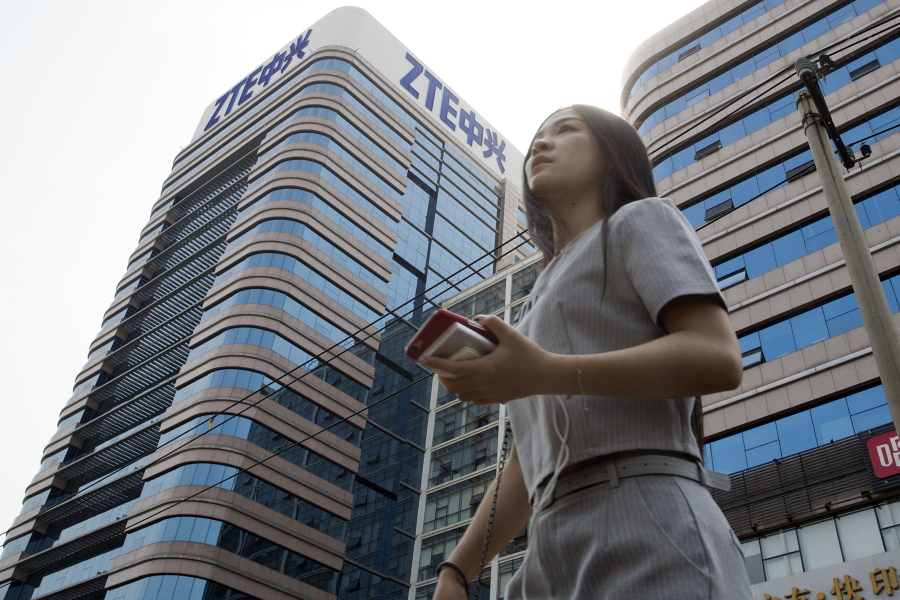WASHINGTON — The Senate on Monday approved a defense policy bill that includes a pay raise for the military and would block a White House plan to allow Chinese telecom giant ZTE Corp. to buy component parts from the U.S.
The Chinese company is accused of violating trade laws by selling sensitive technologies to North Korea and Iran. The Trump administration announced a deal with ZTE earlier this month, but Senate leaders have sought to reverse it by tucking a provision into the must-pass defense package.
The Senate approved the bill, 85-10, sending it to the House, which approved the measure last month without the ZTE provision.
The $717 billion measure would give troops a 2.6 percent pay hike — the largest in nine years — and address shortfalls in military readiness such as pilot training, maintenance of equipment and procurement of new weapons systems.
Sen. John Cornyn of Texas, the Senate’s No. 2 Republican, said passage of the annual defense authorization bill “is how we make sure that all of the men and women in uniform are paid, that our alliances are strengthened and that military facilities are properly modernized and maintained.”
The Commerce Department barred ZTE in April from importing American components for seven years after concluding that the company deceived U.S. regulators after settling charges last year of sanctions violations. Instead of disciplining all employees involved, ZTE had paid some of them full bonuses and then lied about it, Commerce said.
The decision amounted to a death sentence for ZTE, which relies on U.S. parts. The company quickly announced that it was halting operations.
But earlier this month, the U.S. and China reached a deal that allows ZTE to stay in business in exchange for paying $1 billion in fines and agreeing to let U.S. regulators monitor its operations.



